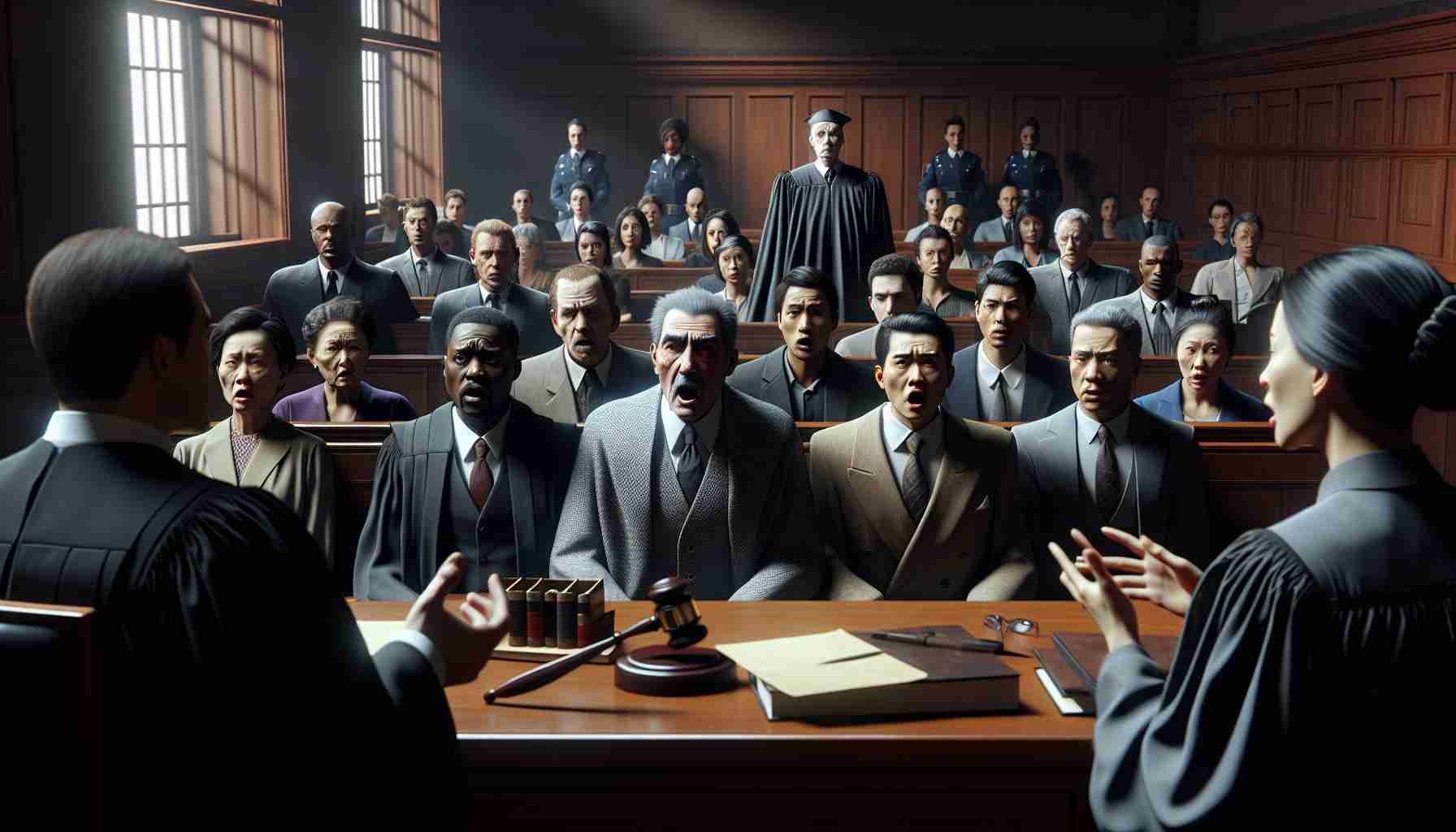Elisa Mouliaá Takes the Stand in a Jarring Case
In a gripping court session last week, actress Elisa Mouliaá testified for nearly two hours before a judge regarding her allegations against former politician Íñigo Errejón, accused of sexual assault. The atmosphere was tense as Mouliaá recounted her experience, frequently breaking down in tears as she detailed the events of that fateful night.
The judge, Adolfo Carretero, conducted a rigorous interrogation, scrutinizing her accusations with unexpected intensity. He expressed skepticism, suggesting that a part of her narrative was “strange” and even implied that her motives for the accusation might stem from personal disillusionment. Carretero questioned whether Mouliaá’s feelings toward Errejón were misinterpreted, insinuating that unreciprocated affection could have fueled her decision to come forward.
Despite the harsh questioning, Mouliaá maintained that the behavior inflicted upon her was indicative of a troubling pattern, solidifying her resolve to seek justice and shed light on her distressing ordeal. The case continues to develop, drawing public attention to the complexities surrounding allegations of this nature and the experiences of those who bravely come forward with their stories.
The Broader Impact of Sexual Assault Allegations in Society
The recent case involving Elisa Mouliaá has reverberations beyond the courtroom, spotlighting the pervasive issue of sexual assault and its implications for societal behavior and norms. This high-profile testimony underscores a growing cultural movement where survivors are increasingly empowered to voice their experiences, challenging the stigma that has long silenced them. Such public cases can catalyze greater awareness and discussion, fostering a shift in how society perceives both victims and perpetrators.
In the context of the global economy, the repercussions of sexual assault allegations extend to corporate and political landscapes. Organizations are reevaluating their policies on harassment and accountability, while companies are investing in training and awareness campaigns to create safer environments. This trend could lead to significant changes in workplace culture, aiming to mitigate risks that contribute to a toxic atmosphere.
Moreover, the environmental effects of such public cases might not be immediately evident, yet they play a role in shaping policies. As public pressure mounts for more protective measures, there may be an increase in funding for advocacy organizations that support survivors, triggering a cascading effect on community resources and legal reforms.
Looking toward future trends, the ongoing discourse surrounding sexual assault may engender long-term changes in legislation, potentially leading to stricter penalties for offenders and enhanced protections for victims. As society grapples with these issues, the implications of each case, like that of Mouliaá, are bound to resonate, making the pursuit of justice a crucial aspect of cultural evolution.
Elisa Mouliaá’s Testimony: A Turning Point in the Fight Against Sexual Assault
Overview of the Case
The ongoing legal battle involving actress Elisa Mouliaá and former politician Íñigo Errejón has highlighted significant issues surrounding sexual assault allegations, highlighting the challenges faced by survivors in the justice system. Mouliaá’s recent testimony reveals not only her personal experiences but also the broader societal implications of such cases, prompting discussions about the support structures for survivors.
Key Features of the Case
1. Testimonial Courage: Mouliaá’s decision to take the stand for nearly two hours underscores the increasing willingness of individuals to speak out against powerful figures. Her testimony reflects a critical moment in addressing the stigma surrounding sexual assault.
2. Judicial Scrutiny: The intense questioning by Judge Adolfo Carretero raises questions about the treatment of survivors in court. His approach has sparked controversy, with advocates arguing that such scrutiny can deter survivors from coming forward.
3. Public Reaction: The public’s response to Mouliaá’s testimony has been largely supportive, contributing to growing awareness around sexual assault and the need for reform within judicial systems.
Pros and Cons of the Legal Proceedings
Pros:
– Increased Awareness: High-profile cases like this one bring attention to the issue of sexual assault and the importance of believing survivors.
– Potential for Change: Public discourse around the case may lead to changes in the legal system to better support victims and handle such sensitive allegations.
Cons:
– Victim Blaming: The judge’s skepticism may contribute to a narrative that blames victims rather than holding perpetrators accountable, potentially discouraging others from speaking out.
– Emotional Toll: The rigorous judicial process can be emotionally taxing for survivors, raising concerns about their well-being during prolonged legal battles.
Trends and Insights
Recent trends show a shift in societal attitudes towards sexual assault, with a greater emphasis on supporting survivors. This case is part of a larger movement advocating for policy reforms that prioritize victim rights and mental health support.
Limitations of the Current Judicial Process
Despite growing awareness, the judicial process for sexual assault cases often lacks adequate measures to protect victims. There is a pressing need for legislative reforms that ensure a more compassionate approach in court proceedings to prevent further trauma.
Predictions and Future Implications
As more individuals come forward, it is anticipated that the discussion surrounding sexual assault allegations will continue to evolve. The Mouliaá-Errejón case may serve as a crucial example of the complexities involved in such allegations, potentially influencing future legal standards and societal perceptions.
For more insights on legal cases and the evolving conversation around sexual violence, visit yourdomain.com.
